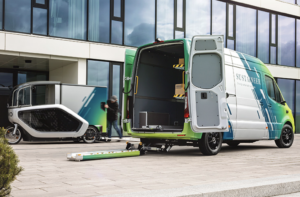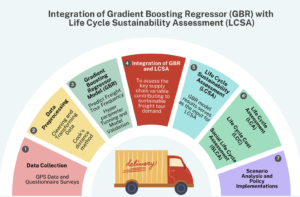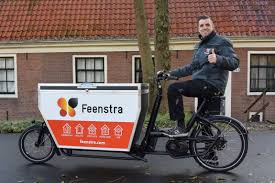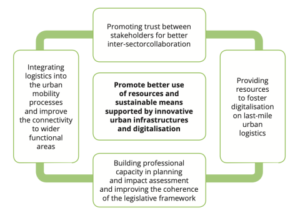What is the city logistics van of the future?

The light commercial vehicle, or delivery van, is the workhorse of both companies and the self-employed in the economy. And with good reason: it is a multifunctional and flexible mode of transport and compared to (smaller) trucks and cars it is also cheap to buy and use. Moreover, a ‘lighter’ drivers license B is sufficient to drive …









